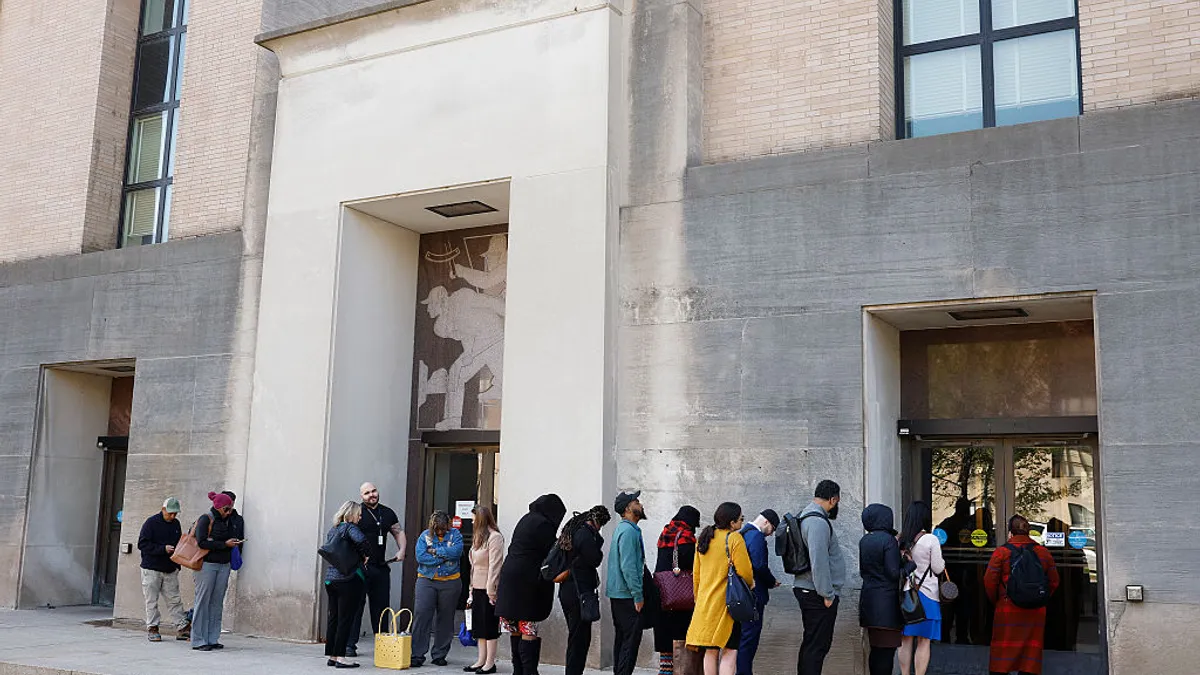When the FDA earlier this year approved the first T cell receptor (TCR) therapeutic to treat a solid tumor, the nod marked a turning point for the field of immunotherapies and personalized medicine. The approved product, Immunocore’s KIMMTRAK, was approved for the treatment of metastatic uveal melanoma, a disease that is typically fatal within a year of metastasis.
A growing number of biotech companies are pursuing TCR-based immunotherapies in light of studies that point to their potential to treat cancer and improve survival rates in patients. Nevertheless, there are many challenges posed by TCR therapies, not least of which is the fact that they’re complex and require careful engineering.
“T cells on their own, or as nature intended, are extremely cross reactive, even though they can be very potent,” says Etcembly CEO and founder, Dr. Michelle Teng. “You need engineering in order for your TCR candidate to transform immunotherapy and deliver the most potent response in the patient.”
UK-based Etcembly, a platform technology company, says it’s “building the world’s largest machine learning database” and drawing on immunology expertise to develop treatments particularly applied to TCR-based therapies. The combination of a proprietary machine learning platform and empirical knowledge provides data on a TCR candidate to validate affinity and then deliver confirmation of every possibility of off-target, cross-reactive or toxicity binding events.
“This combination lets us develop treatments faster than traditional pharmaceutical companies can, without the worry of potential off-target toxicity,” Teng says. “We can also design multiple TCRs for the same cancer antigen, which is key because when companies develop drugs, they want a lead and backups.”
Here, Teng discusses Etcembly’s proprietary machine learning platform, EMLy, how it is being used to advance TCR therapeutics as well as the near and long-term opportunities for immunotherapy development supported by machine learning and her vision of democratizing TCR therapeutics.
PharmaVoice: How can machine learning technology be leveraged to advance immunotherapies?
Michelle Teng: Up to this point immunotherapies have exploited the specificity of T cells to disease-related peptides for broad application across myriad disease areas — from cancer to viral infections to autoimmunity. But there’s growing realization that the key to success is to link the right TCR to the target peptide. That’s why we are building the world's largest health and disease immune repertoire database, EMLy, which stands for Etcembly machine learning, to accelerate the development of TCR therapeutics.
The way EMLy works is to crack the complex code of TCR repertoires. Without machine learning you can’t match these TCRs to their target antigens. Once you know what the target antigen is, it becomes easier to design TCRs in silico for any disease. So EMLy goes out and searches the entire sequence base of TCRs out there. So, we’re doing the heavy lifting for our pharma partners, which means less labor-intensive processes and reduced waste and expenditure.
What are the greatest near-term opportunities for this intersection between machine learning and immunotherapy development?
There is huge potential for a pharma company to be able to expand the pipeline rapidly, de-risking any failures along the way, because we're able to not just design TCRs in silico, we are also able to engineer them to the most optimal form so they provide the most potent response in patients. We're taking away a lot of the pain points for discovery companies that want to move into T-cell therapy.
There are about 150 T-cell immunotherapy companies out there and all are, I imagine, seeking to compress their timelines. Typically, finding a cancer antigen would take you a few cloning campaigns over perhaps a year, followed by maybe another year of engineering. But we’re doing this in about six months and delivering the answer to companies with laboratory-backed data.
Where do you see machine learning being used in drug development and innovation in the future?
It’s really about giving the computer the ability to solve a problem that isn’t possible using traditional approaches. There's so much data out there, and you can't actually make sense of it using human understanding. It’s also important to recognize that as you solve one problem, the bottleneck ends up somewhere else. So, in our case, if we solve the drug discovery problem, it still leaves you with the question: Is this molecule safe? We are also able to do an exhaustive screening of the TCR candidate against all potential antigens to give partners the full safety profile of their drug backed up with laboratory experiments.
What is your vision for TCR therapeutics and what role can Etcembly play in achieving those goals?
We want to democratize TCR immunotherapy. One of the limitations in TCR immunotherapy is that it’s driven by genetics. In other words, TCR therapies can only work for individuals with certain genetic composition and they will not work with another set. All this genetic immune background is tied, to an extent, to our ethnicity. We believe that TCR research is quite European-centric because it is tied to economies that can pay for it. We want to make this a global solution and address this inequality. We want to create a database where we can design TCR immunotherapy drugs, regardless of your background, or your ethnicity, or where you come from. Today, there is huge ethnic diversity in most cosmopolitan areas, such as London, where the population might be 30% or 40% ethnic minorities. So, if your immunotherapy is only going to work with maybe 60% of Europeans, what happens to the 40%?




















